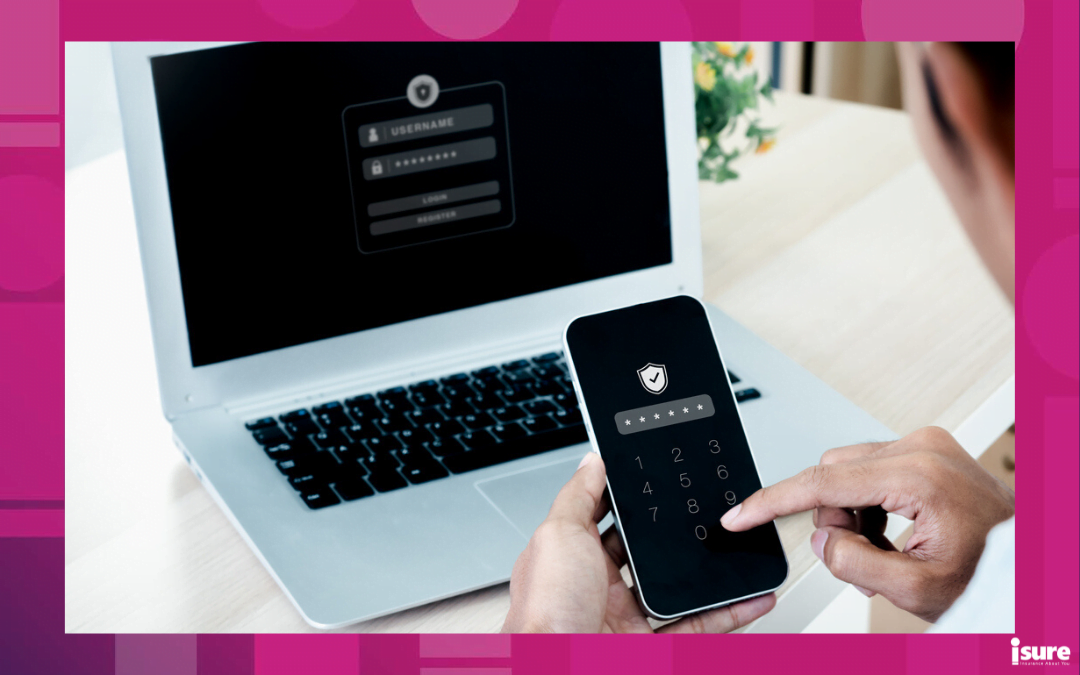Now more than ever, homeowners need to protect themselves from cyber threats. As digital devices, smart homes, connected devices, cloud computing, online banking, and other online remote services become more prolific in our day-to-day lives, it increases exposure to an attack. One of the best ways to stay safe in this modern, digital world is to have the proper protection and coverage through your home insurance policy. As we add more devices to our homes for entertainment and convenience, it is increasingly important to protect those devices from cyber threats. Learn what personal cyber insurance is, how it may be an add-on option for your homeowners’ insurance policy, as well as steps you can take to protect your cyber presence online.
What is Personal Cyber Insurance?
Personal cyber insurance protects you and your family from the aftermath of a cyberattack or data breach. This would be similar to that of a business, but more personal through your home network. Cybercrimes and risks include:
- Online account takeover or compromise
- Expenses incurred or financial loss due to identity theft
- Social engineering scams
- Covers your liability should other people’s information be stolen from you
What does this type of insurance cover?
Personal cyber insurance, also called “cyber attack insurance,” is often sold as an add-on to home insurance and can cover a range of cyber-crimes:
- Cyber attack coverage pays for the removal of a virus or reprogramming of desktops, laptops, smartphones, tablets, Wi-Fi routers and other internet access points, such as smart home devices and security systems.
- Cyber bullying coverage helps you deal with online harassment that results in wrongful termination, discipline from school, temporary relocation expenses, temporary private tutoring, lost wages and legal expenses.
- Cyber extortion coverage helps you recover from ransomware attacks that block you from accessing your personal data and demanding a fee to regain control. This coverage might include assistance from experts who can help you regain your files and reimbursement for any ransom paid, if approved by your insurance company.
- Data breach coverage helps pay for services if personal data entrusted to you is lost, stolen or published. For example, if you sell tickets for a school fundraiser and have credit card information from buyers on your tablet. If the tablet is stolen, this coverage will pay for services to the individuals who are affected by the data breach.
- Online fraud coverage pays for direct financial losses due to problems like identity theft, unauthorized banking or credit card transfers, phishing schemes and other types of fraud.
How does this type of protection work exactly?
If you are the victim of a cyber attack at home, you can file a claim to help pay for expenses (like legal fees or document recovery) and direct financial losses (like fraudulent credit card charges) covered by your policy. The policy will typically have a coverage limit and a deductible.
Who needs Personal Cyber Insurance?
Simply put, if you use a computer, smartphone, or a connected device, use online banking, store data electronically or access it online, this coverage is for you. Cyber coverage can help pay for the costs associated with recovery of your identity and devices in the event of cyber extortion or fraud. Individuals have been exposed to countless sorts of attacks by hackers. Logging in personal information into a bogus website is one such example. When setting up your account on the fake website, if you use the exact username and password as the email address attached to the account, hackers can now use this information to steal personal information. Furthermore, they may use it to then open a credit card in your name.
How do I obtain cyber protection for my home?
If you have a renter’s, condo or homeowners’ insurance policy, your insurer might offer personal cyber insurance as an optional coverage. Some insurers offer personal cyber insurance only for high-value home insurance policies.
What’s the difference between personal cyber insurance and identity theft insurance?
Personal cyber insurance covers a range of cyber crimes, such as cyber extortion, cyberbullying, online fraud and data breaches. It helps cover direct financial losses and expenses as a result of cyberattacks. You generally purchase personal cyber insurance as an endorsement to a homeowners’, renters’ or condo insurance.
Identity theft insurance reimburses you for expenses to restore your identity if you are the victim of identity theft. You can typically buy this coverage from an insurance company, credit card or an identity theft protection service. But identity theft insurance won’t cover direct financial losses as a result of the identity theft.
Does my homeowners’ insurance cover cyber attacks?
A standard homeowners’ insurance policy covers certain types of fraud, such as unauthorized use of credit cards, cheque forgery and counterfeit money. But your policy may have a “sub-limit” for what it will cover. For example, a policy might cover up to only $500 per occurrence of unauthorized credit card use. Your home insurance won’t cover cyber attack-related expenses, like legal fees, temporary relocation costs due to cyber bullying or data recovery costs.
How can I prevent cyber attacks?
Here are steps you can take to reduce your risk of a cyber-attack:
- Use an identity theft protection service.
- Change your password every two to three months. Use a “strong” password that is at least 12 characters long. Use a secure password manager to accurately save your passwords.
- Never save your credit card information online.
- Use safe payment options when shopping online. Credit cards are generally safer than debit cards.
- Backup digital information (such as music, photos, contacts, financial and health records) by making copies of your data to a cloud service and hard drive.
Economical Insurance has some tips to keep in mind to avoid falling for a phishing scam:
- Run any necessary updates for each internet-connected device and app. This will make sure you have the latest security updates provided by the manufacturer.
- Protect your home’s wireless router with a secure, complex password. This is so people without the password can’t easily access your Wi-Fi network.
- Delete apps you aren’t using, as they can be used to gather personal information.
- Whenever possible, use two-factor authentication on online accounts and devices for an extra layer of security.
- Never enter personal information (especially banking or credit card numbers) on a website, unless you can verify it’s secure. This can be shown through the little lock beside the URL.
- Take these additional steps to secure your smart home devices. This includes smart fridges, thermostats, and TVs.
Additional resource: getcybersafe.gc.ca
Sometimes cyber attacks can happen at home, despite your best efforts to keep your technology secure. Whether you’re working from home or just spending more time indoors, now is a good time to take some cybersecurity measures to keep your personal information secure. It is also important to make sure your insurance is up-to-date to accommodate your changing needs. Speak with one of our isure representatives if you have questions about home insurance and cyber attacks, cyber insurance and cyber liability insurance.




